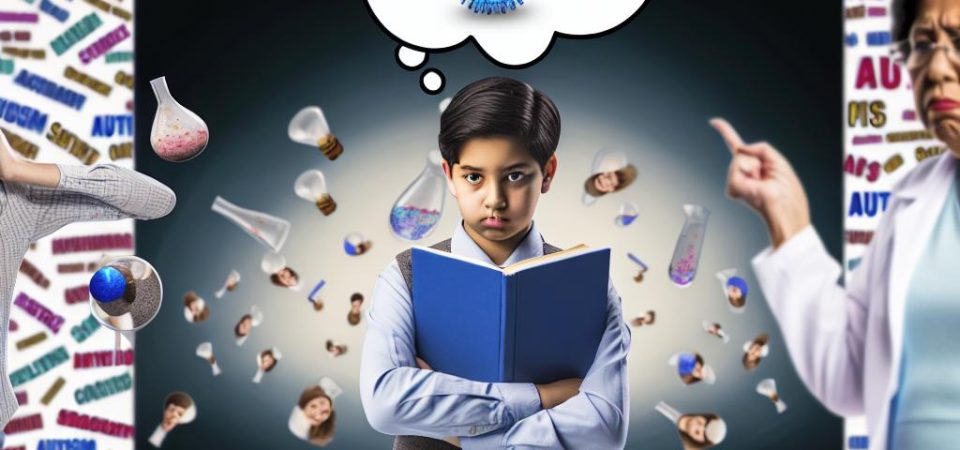Understanding Autism
Autism Spectrum Disorder (ASD) is often misunderstood, leading to several common misconceptions. These misunderstandings can affect how individuals with autism are perceived and treated. It’s crucial to address these misconceptions with factual information to foster a more inclusive society. By exploring various aspects of autism, we can better understand the condition and support those affected by it more effectively.
Autism Is Not a Disease
A prevalent misconception is that autism is a disease. In reality, autism is a neurodevelopmental disorder. This means it affects how a person’s brain develops, impacting communication, behavior, and social skills. Autism is not a condition that can be ‘cured’. Instead, therapy and support can help individuals manage their symptoms and live fulfilling lives.
The distinction between a disease and a disorder is critical. Diseases typically have a known cause, such as a virus or bacteria, and often have a known treatment or cure. On the contrary, disorders like autism have more complex causes, often involving genetic and environmental factors, and require management rather than a one-time treatment.
Autistic People Are Not All Alike
A common stereotype is that all autistic individuals are alike. The term “spectrum” in Autism Spectrum Disorder indicates the wide range of symptoms and abilities that individuals may exhibit. Some may require significant support, while others may live independently. This diversity means that strategies and interventions must be personalized.
Understanding the spectrum nature of autism emphasizes the importance of tailored approaches. Educators, healthcare providers, and families need to recognize the unique presentations and needs of each individual. What works for one person might not work for another, necessitating flexible and individualized support plans.
Non-Verbal Does Not Mean Non-Communicative
Non-verbal autistic individuals are often mistakenly thought to be unable to communicate. While they may not use spoken words, many utilize alternative communication methods like sign language, picture boards, or speech-generating devices. Recognizing these methods as valid forms of communication is vital to understanding and supporting non-verbal individuals.
Communication is fundamental to human interaction, and finding effective methods can significantly enhance the quality of life for non-verbal autistic individuals. Family members, educators, and peers should encourage and facilitate these alternative communication methods to foster better interaction and understanding.
Autism and Intelligence
Another misconception is linking autism with intellectual disability. While some autistic individuals may have intellectual challenges, many have average or above-average intelligence. The belief that all autistic people are intellectually disabled can overlook their potential and talents.
It is important to focus on individual strengths and abilities rather than limitations. By promoting a strengths-based perspective, society can better recognize the unique contributions of autistic individuals and provide opportunities for showcasing their talents in various fields.
Autism Is Not Caused by Vaccines
The myth that vaccines cause autism stems from a discredited study. Extensive research has shown no scientific link between vaccines and autism. Promoting accurate information contributes to public health and encourages responsible vaccination practices.
Clarifying this misconception is crucial for public health. The fear surrounding vaccines can lead to decreased immunization rates, endangering community health by increasing the risk of preventable disease outbreaks. Clear communication and education are instrumental in maintaining trust in vaccination programs.
Autism Does Not Always Involve Savant Skills
Fascination with savant skills in some autistic individuals can lead to the stereotype that all autistic people possess extraordinary abilities. In reality, savant skills are rare. While some may have exceptional talents or skills, most do not exhibit savant-level abilities.
Understanding this helps in setting realistic expectations and appreciating each person as an individual, rather than expecting extraordinary skills. This broader perspective enables more meaningful support focused on personal growth, development, and quality of life.
Social Challenges Do Not Equate to Lack of Interest
Some believe that autistic individuals are disinterested in social interaction. However, many autistic individuals desire social relationships but might lack the tools or skills for typical social engagement. Understanding this can pave the way for more supportive and inclusive interactions.
By understanding the challenges they face, we can better support autistic individuals in achieving meaningful social connections. Social skills training and supportive environments can aid in developing the skills necessary for successful interpersonal interactions.
In conclusion, Autism Spectrum Disorder encompasses a broad range of symptoms, abilities, and challenges. It’s vital to dismantle misconceptions, replacing them with well-informed perspectives focusing on understanding and acceptance. A supportive society acknowledges the individuality of autistic persons and their valuable contributions, whether in community settings, workplaces, or family dynamics.
To further explore reputable sources and gain a deeper understanding of autism, visit Autism Speaks or National Autistic Society. These organizations provide comprehensive information and resources about autism, helping to dispel myths and promote awareness.
